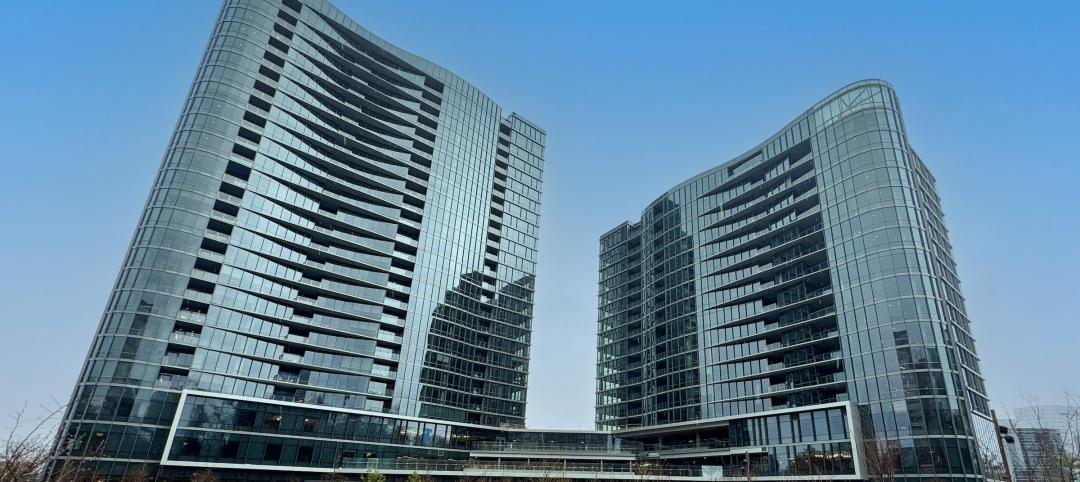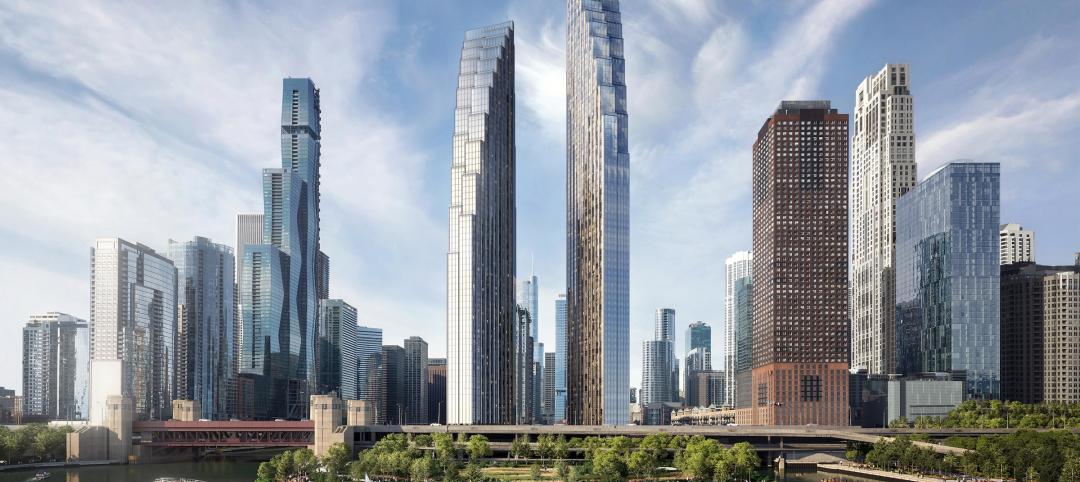Seven years removed from the beginning of the most severe housing market crash since the Great Depression, the U.S. single-family residential sector is finally starting to snap out of its long period of malaise. Home prices, new-home sales, existing-home sales, and housing starts have all trended higher during the past 12-18 months, and while the market remains significantly depressed relative to 2005-06 output, it’s safe to say the single-family housing sector is in a much healthier state.
During the depths of the recession, multifamily construction remained one of the few relatively bright spots of the nation’s residential building sector, driven largely by pent-up demand for apartments and other rental units, such as student and senior housing. But as the economy recovers and homeownership becomes a realistic option for more consumers, the question becomes: Does this spell the end of the multifamily sector’s hot streak?
Not anytime soon, according to FMI’s Construction Outlook Report for First Quarter 2013, which predicts a 31% YOY increase in multifamily construction spending in 2013 and another 27% in 2014 (following 47% growth in 2012). The sector is expected to reach its housing boom peak ($54 billion in annual construction spending) by 2017—although annual percent growth will taper off over the next four years.
Real estate investment services firm Marcus & Millichap is forecasting long-term demand for rental housing to remain strong across most U.S. metro markets. According to its 2013 Apartment Outlook, the recent boom in apartment construction—85,000 units completed in 2012 and an estimated 150,000 units to come online this year, up from just 40,000 in 2011—isn’t enough to meet the pent-up demand for rentals in most markets.
TOP MULTIFAMILY ARCHITECTURE FIRMS
2012 Multifamily Revenue ($)1 IBI Group $42,729,4362 Niles Bolton Associates $22,446,8213 Perkins Eastman $17,400,0004 WDG Architecture $17,233,0005 Solomon Cordwell Buenz $16,000,0006 RTKL Associates $12,992,0007 Perkins+Will $10,783,6198 Skidmore, Owings & Merrill $10,179,0009 HOK $7,730,00010 VOA Associates $6,902,030
TOP MULTIFAMILY ENGINEERING FIRMS
2012 Multifamily Revenue ($)1 STV $42,284,0002 URS Corp. $42,072,0703 AECOM Technology Corp. $39,580,0004 Parsons Brinckerhoff $37,500,0005 Michael Baker Jr. $21,020,0006 Buro Happold Consulting Engineers $20,430,0007 Wiss, Janney, Elstner Associates $18,070,0008 Thornton Tomasetti $13,899,0309 KPFF Consulting Engineers $13,000,00010 Simpson Gumpertz & Heger $10,200,000
TOP MULTIFAMILY CONSTRUCTION FIRMS
2012 Multifamily Revenue ($)1 Lend Lease $1,105,667,0002 Clark Group $733,189,9593 Balfour Beatty $416,669,8564 Swinerton Builders $379,053,2495 Walsh Group, The $277,912,5256 James McHugh Construction $239,964,2587 Whiting-Turner Contracting Co., The $212,734,1208 Weis Builders $207,290,0009 Suffolk Construction $203,442,89410 Harkins Builders $201,000,000
Giants 300 coverage of Multifamily brought to you by Andersen www.andersenwindows.com
“Many metros are well short of new product coming online,” said Hessam Nadji, Managing Director, Research and Advisory Services with Marcus & Millichap, during the firm’s 2013 apartment market forecast. “And the new product that is coming online is ultra-high-end and not really affecting the workforce housing or the middle of the bell curve, where the demand is. Overall, we do not expect building to become an issue whatsoever.”
There are enough impediments to homeownership, experts argue, to keep the rental market strong for the immediate future, including a still-recovering jobs market, increasingly stringent mortgage requirements, and a sizable swath of the home-buyer base that is still reeling from the effects of the housing market downturn, with underwater or delinquent mortgages. Plus, the nation’s two largest generational groups—the baby boomers, who are at or near retirement age, and the Millennials, most of whom are in the very early stages of their career—are ripe for long-term rentals.
This outlook is music to Jeffrey Raday’s ears. Raday is President of McShane Construction, one of the nation’s largest multifamily contractors. The sector will represent more than half of the company’s business in 2013.
“Along with the positive outlook for market-rate and luxury rental developers, we are also encouraged by the growth expectations within the student housing, senior living, affordable housing, and supportive living sectors,” says Raday. “We enjoy a significant amount of both new and renovation construction activity in those markets.”
Despite the exuberance, multifamily experts are fearful of overbuilding, as developers race to catch the market upswing. With nearly a half-million rental units expected to come online between 2013 and 2015, chances are developers and owners in certain markets and submarkets will be caught with their pants down as demand eases.
Luxury tops multifamily trends
Multifamily housing trends vary market to market, but experts point out several overarching shifts that are driving change in the way projects are designed, built, and developed:
Luxury prevails. From urban condos to suburban apartments to rural student housing, developers are meeting the market’s demand for lavish amenities and features, including clubhouses, workout facilities, pools, spas, and upgraded appliances and finishes.
Greater need for space. One-bedroom units currently make up about 80% of the multifamily rental stock in most metros, but Niles Bolton, AIA, CEO and Chairman of Niles Bolton Associates, expects that number to decrease in the coming years as more baby boomers hit the market.
“We are seeing more product with larger units favoring two-bedroom luxury product being developed in affluent, stable neighborhoods,” he says. “I expect to see longer-term rentals in nice properties as empty nesters seek rental homes not located in senior communities.”
Micro units—rentals as small as 250 sf—are gaining acceptance among Millennials, who value location, affordability, and mobility over space.
In addition, developers working in tight, urban spaces have been successful in getting approval for tall, slender structures, allowing them to build where the demand is highest.
“Advances both in structural design and building materials have made constructing skinny multifamily towers much easier than a few years ago,” says Jeff Arfsten, Lend Lease’s Interim Managing Director and COO, Project Management and Construction. “Steel-reinforced concrete is more than twice as strong as it was a generation ago.”
Moving away from the box. Demand is up for complex designs that break up the typical multifamily box, such as sloping walls, high slab heights, and large ceiling-to-floor views, according to Arfsten. “Not many multifamily buildings just go straight up anymore,” he says. “The complexity of designs seems to be indicative of the developer being able to seek higher prices per unit.”
Ditching street-level retail. Bolton says municipalities are starting to ease on the requirements for street-level retail on multifamily projects. “Too many developments over the last 10 years have struggled with city-mandated retail space that has remained vacant because the density and activity were not there to support it,” he says.
Read BD+C's full Giants 300 Report
Related Stories
MFPRO+ New Projects | Jul 2, 2024
Miami residential condo tower provides a deeded office unit for every buyer
A new Miami residential condo office tower sweetens the deal for buyers by providing an individual, deeded and furnished office with each condo unit purchased. One Twenty Brickell Residences, a 34-story, 240-unit tower, also offers more than 60,000 sf of exclusive residential amenities.
Student Housing | Jul 1, 2024
Two-tower luxury senior living community features wellness and biophilic elements
A new, two-building, 27-story senior living community in Tysons, Va., emphasizes wellness and biophilic design elements. The Mather, a luxury community for adults aged 62 and older, is situated on a small site surrounded by high-rises.
Smart Buildings | Jul 1, 2024
GSA to invest $80 million on smart building technologies at federal properties
The U.S. General Services Administration (GSA) will invest $80 million from the Inflation Reduction Act (IRA) into smart building technologies within 560 federal buildings. GSA intends to enhance operations through granular controls, expand available reporting with more advanced metering sources, and optimize the operator experience.
Sustainability | Jul 1, 2024
Amazon, JPMorgan Chase among companies collaborating with ILFI to advance carbon verification
Four companies (Amazon, JPMorgan Chase, JLL, and Prologis) are working with the International Living Future Institute to support development of new versions of Zero Carbon Certification.
K-12 Schools | Jul 1, 2024
New guidelines for securing schools and community spaces released by the Door Security and Safety Foundation
The Door Security and Safety Foundation (DSSF), in collaboration with Door and Hardware Institute (DHI), recently released of “Are Your Door Openings Secure?.” The document provides guidelines to equip school administrators, building management personnel, and community leaders with a clear roadmap to create a secure and safe environment.
University Buildings | Jun 28, 2024
The American University in Cairo launches a 270,000-sf expansion of its campus in New Cairo, Egypt
In New Cairo, Egypt, The American University in Cairo (AUC) has broken ground on a roughly 270,000-sf expansion of its campus. The project encompasses two new buildings intended to enhance the physical campus and support AUC’s mission to provide top-tier education and research.
MFPRO+ New Projects | Jun 27, 2024
Chicago’s long-vacant Spire site will be home to a two-tower residential development
In downtown Chicago, the site of the planned Chicago Spire, at the confluence of Lake Michigan and the Chicago River, has sat vacant since construction ceased in the wake of the Great Recession. In the next few years, the site will be home to a new two-tower residential development, 400 Lake Shore.
Codes and Standards | Jun 27, 2024
Berkeley, Calif., voters will decide whether to tax large buildings with gas hookups
After a court struck down a first-in-the-nation ban on gas hookups in new buildings last year, voters in Berkeley, Calif., will have their say in November on a measure to tax large buildings that use natural gas.
Mass Timber | Jun 26, 2024
Oregon State University builds a first-of-its-kind mass timber research lab
In Corvallis, Oreg., the Jen-Hsun Huang and Lori Mills Huang Collaborative Innovation Complex at Oregon State University aims to achieve a distinction among the world’s experimental research labs: It will be the first all-mass-timber lab meeting rigorous vibration criteria (2000 micro-inches per second, or MIPS).
Sustainability | Jun 24, 2024
CBRE to use Climate X platform to help clients calculate climate-related risks
CBRE will use risk analysis platform Climate X to provide climate risk data to commercial renters and property owners. The agreement will help clients calculate climate-related risks and return on investments for retrofits or acquisitions that can boost resiliency.

















